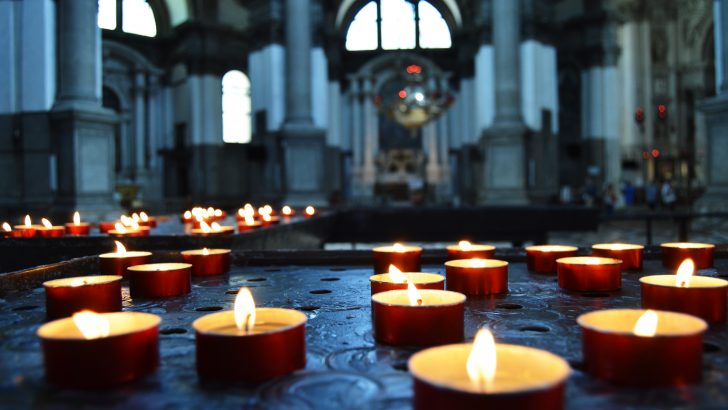Mindful Living
On each Sunday of Advent we light a new candle in the Advent Wreath. The candles represent hope, peace, love and joy reflecting the fruits of the Spirit as described by St Paul in Galatians 5:22. Because meditation helps to awaken us to the spirit within, these fruits, “love, joy, peace, patience, kindness goodness, truthfulness, gentleness and self-control” are often referred to as the fruits of meditation in the Christian tradition.
No one is a stranger to Jesus and we should strive to live our lives from that same mind-set”
At the heart of these is love, the first fruit of the Spirit, because they are all inspired by God who is love and because love encompasses all the other fruits. As St Paul says in 1 Corinthians 13:2, “If I am without love, I am nothing”. Jesus, through his teaching and example, sought to change how we think about Love. The Gospel of Mark records how he confirmed the ancient teaching that we should “love God with all your heart, with all your strength and with all your mind, and your neighbour as yourself”. However, He then told the parable of the Good Samaritan, which challenged the thinking of his time about who our neighbour is.
The priest and the Levite who came across the wounded man would have been well-regarded and deemed to be holy but in the parable they ignored the injured man and walked on; it was the Samaritan, typically looked down upon in Jewish society of the time, who responded with love and compassion. A clear moral of the story is that we are to be loving to all; not merely to family and friends but to all, including those whom we may regard as strangers. No one is a stranger to Jesus and we should strive to live our lives from that same mind-set.
Richard Rohr suggests that we live out our lives within at least three levels of meaning. He imagines these levels as three concentric domes, or containers. He names the first and smallest dome My Story, the second larger dome Our Story, and the third and largest dome as The Story. The first dome is ego-centric, all about ‘me’, seeing oneself at the centre of life and everyone and everything else as somehow serving ‘my’ needs, ‘my’ feelings, wants and opinions are the reference point for everything.
All of us must go through this stage as children before we come to realise there is the larger perspective of family and tribe as we begin to identify with Our Story. In this phase, our family or immediate community or nationality becomes the determining reference point. Some people never mature beyond such group narcissism, beyond the collective ego of the group. One’s spiritual growth remains limited in such a context as ‘our’ way of life and ‘our’ religion are seen as the only right way of living.
But we need to move beyond this into the third and largest dome where meaning is understood within the context of The Story, which Rohr describes as ‘the realm of universal meaning and the patterns that are always true in every culture’. Although Jesus is a powerful example of a teacher who challenged the limited, group-centric thinking of his time, up to Vatican II, many Christians remained rooted within the middle dome, as some still do even today.
Yet, over the centuries, many of the saints, mystics and great teachers of the Church remind us again and again that contemplative prayer awakens us to the bigger picture. They have given witness to the practice of meditation – spending time in the stillness and silence of the sacramental present moment – as a portal to the ever-presence of God and the power of such awareness to transform the person who meditates regularly. These mystics include Meister Eckhart (13th/14th Century), the anonymous author of The Cloud of Unknowing, St Catherine of Siena (14th Century), Julian of Norwich (late 14th, early 15th Century), St Teresa of Ávila (16th Century) and Jean-Pierre de Caussade (18th Century). In modern times, saints and teachers such as St Thérèse of Lisieux, Thomas Merton, John Main, Thomas Keating, as well as Pope St John Paul II, Pope Emeritus Benedict XVI and Pope Francis have spoken and written about the importance of contemplation as a means of deepening our spirituality and transforming our way of seeing the world by putting on the mind and heart of Christ.
We often mistakenly regard Christmas merely as an historical event, focusing on what happened such a long time ago. But the reason we celebrate Christmas every year is to remind ourselves that if we are to bring about the kind of world that Jesus envisioned, then each one of us is called again to give birth to Christ within our heart. And to live our lives from a deep awareness that this is who we are. This is not just a task for Christmas but for every day of our lives. The love we encounter in meditation transfigures us – it dissolves the boundaries between oneself and others. Meditation helps us to reframe our experience of everyday life, to learn that we don’t have to live out of our own limited resources but out of the infinite energy of God within us.



